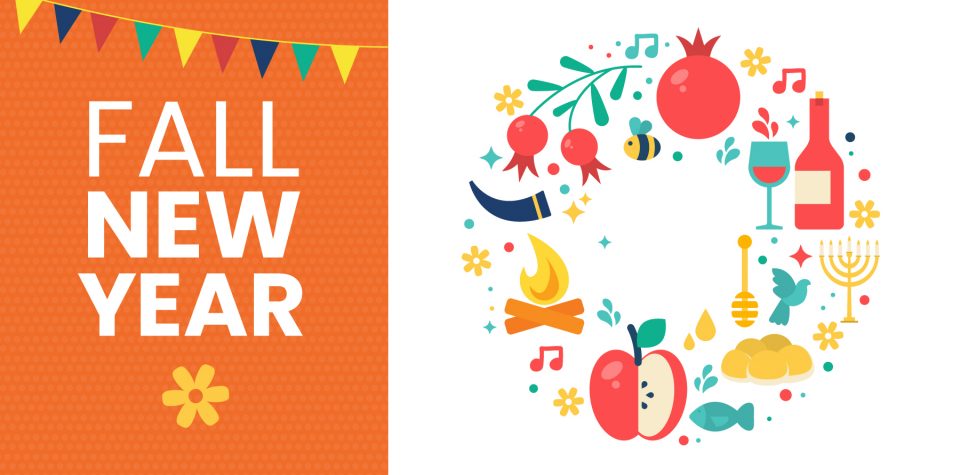
Fall Marks an Ending and a Beginning
Autumn is in the air, bringing with it the crisp excitement of change. While many families mark this time with a wardrobe refresh or back-to-school shopping, some have their official new year’s celebrations at this ripe time of beginnings and endings.
Rosh Hashanah
In the Jewish culture, September brings Rosh Hashanah, considered the birthday of the universe and the day that Adam and Eve were created. The dates of this two-day festival vary, but it’s the first of the High Holidays or “Days of Awe,” ending 10 days later with Yom Kippur.
Rosh Hashanah actually means “Head of the Year.” If you think of the year as a living creature, this celebration pays homage to the brain of the operation, where experience and knowledge begin. By taking the time to honor the head of the year, the idea is that we can set intentions for our actions in the “body” of the year ahead.
The celebration begins with the sounding of the ram’s horn (or shofar) just as a trumpet might be blown at a coronation. People gather for festive meals, eat sweet delicacies such as apples with honey, pray, light candles, and put any creative projects on pause to rest and reflect.
Rosh Hashanah is about inviting renewed peace, prosperity, and blessings into the year ahead. We can connect with this as we watch the leaves put on their final show and send little ones off into their futures.
Enkutatash
Ethiopians also celebrate the new year at this time because, as in the Jewish tradition, they believe the Earth was created in the month of September. Legend has it that, at this time of year 3,000 years ago, their Queen of Sheba went to visit King Solomon, and he showered her with royal gifts. Upon her return, the Ethiopian chiefs welcomed her back with a fresh supply of jewels, and that’s why the holiday is called Enkutatash, meaning “gift of the jewels.”
To celebrate, families share a traditional meal of doro wat (chicken stew), injera (flat bread), honey-based wine, and freshly roasted Ethiopian coffee. Later in the day, young girls sing songs and present bouquets of the yellow flowers that typically blanket the landscape at the end of the rainy season. In more urban areas, family and friends might exchange gifts, cards, and well wishes in lieu of flowers.
As nighttime approaches, families gather around a bonfire, dance, and sing happy songs long into the night. When the fire dies down, it’s customary to jump three times over the fire pit, to leave the old year behind and welcome the new year.
Enkutatash is a time when communities and families forget grievances and honor their shared experiences ahead. That is something we can all embrace heading into this Fall.
No matter what beginnings or endings you’re experiencing this September, we wish you a fresh start with new opportunities to grow and connect in the year ahead.
